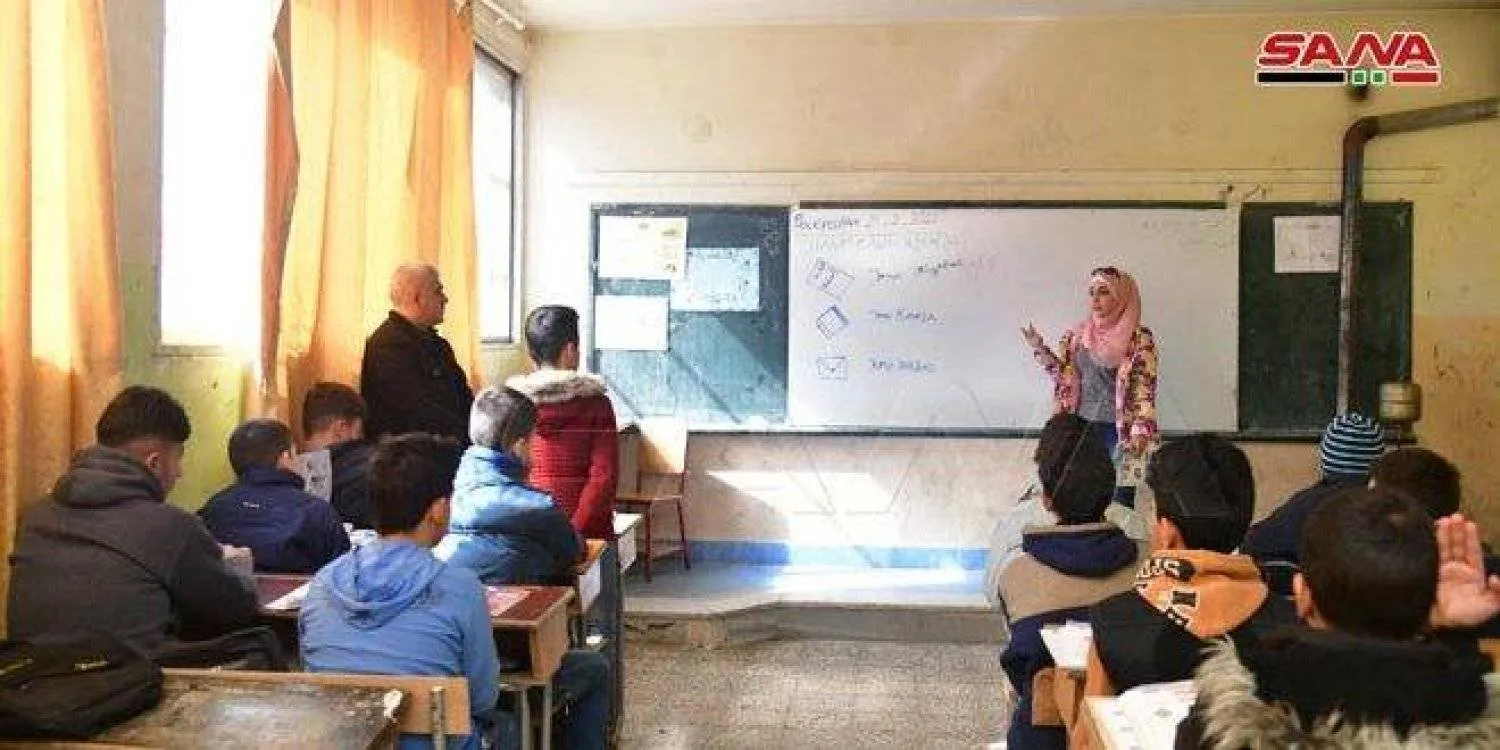As the 10th anniversary of Russia’s military intervention in Syria approaches on Sep. 30, and with the new school year starting, Syrian Ministry of Education figures show a notable rise in students learning Russian.
There are now 39,500 students from seventh grade through the second year of secondary school studying Russian, according to Bassam Al-Tawil, the top Russian language instructor at the Ministry, speaking to SANA.
In 2020, around 24,000 students were studying Russian. By 2021, this number had increased to over 31,000, spread across 217 schools in 12 provinces, with a teaching staff of 190 instructors.
Since its military intervention in Syria in 2014, Russia has focused on increasing its cultural influence through education.
The Syrian government introduced Russian as a second foreign language option in schools starting from the 2014-2015 academic year, alongside English or French, for students in the later stages of basic education.
A Russian language department was also set up at Damascus University that year.
In the past nine years, Russia has expanded Russian language education by equipping classrooms with interactive tools, opening more classes and centers, training teachers, and organizing camps in Russia for Syrian students.
Recently, the Syrian Ministry of Education received about 5,000 copies of a new “Russian Language Curriculum” textbook for seventh grade. Created by a joint committee from Syria and Russia, the textbook will be tested this year.
Dr. Rami Al-Dalli, Deputy Minister of Education, announced that the book, delivered by a Russian organization, will be distributed to schools in Damascus, Homs, Tartus, Latakia, Sweida, and Daraa—areas with the most Russian language classes.
Al-Dalli said this move marks the “culmination” of the collaboration between the Syrian and Russian education ministries and aims to enhance their partnership.
According to SANA, Alexei Cherkizov, known for his involvement with the “Global Christian Union,” the organization which distributed the curriculum in Syria, reported that “1,000 Syrian students receive scholarships to study in Russia each year, totaling 5,000 Syrian students currently in Russian universities.”
He also noted that six remote Russian language classes have been offered by the Syrian Ministry of Education for the past four years.
Rising Interest in Russian Language in Syria

Russian language class at a school in Syria (SANA)

Rising Interest in Russian Language in Syria

Russian language class at a school in Syria (SANA)
لم تشترك بعد
انشئ حساباً خاصاً بك لتحصل على أخبار مخصصة لك ولتتمتع بخاصية حفظ المقالات وتتلقى نشراتنا البريدية المتنوعة







